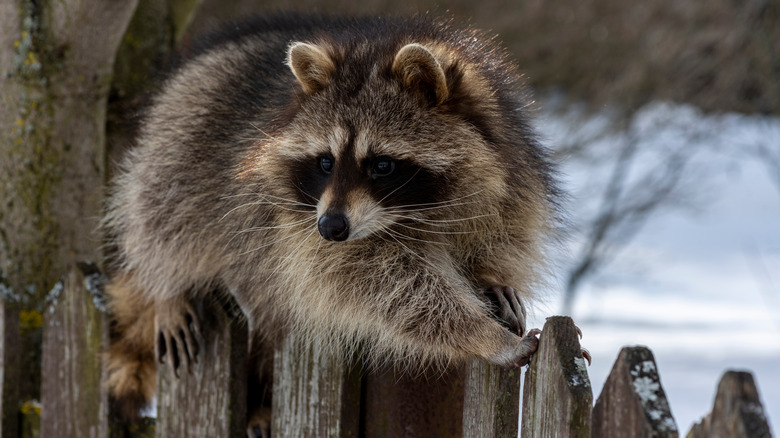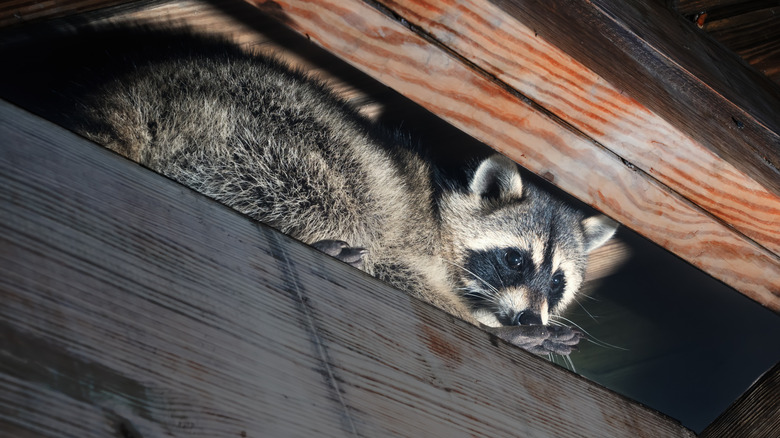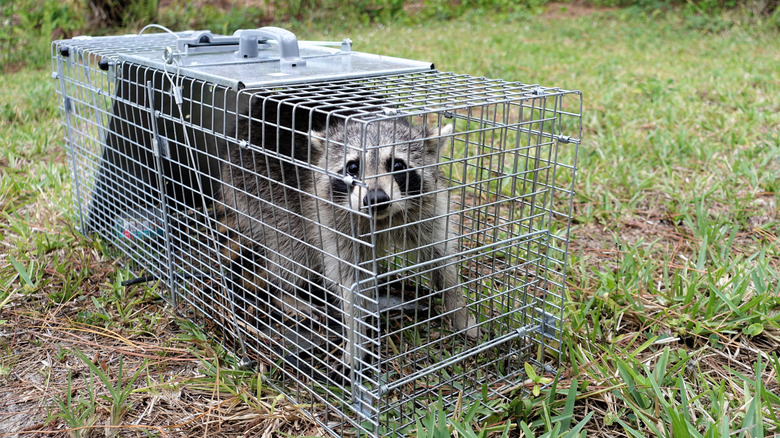Think Twice Before Trying These Popular Raccoon Pest Control Methods
Raccoons, with their masked faces and nimble paws, certainly make unwelcome guests in our homes and gardens. While these features may be compelling (when they are in nature), their tendency to "dumpster dive," vandalize, and even spread disease ensures that many people need to effectively control them. While there are plenty of helpful resources available to help decide the best way to get rid of these pests, there are two popular raccoon pest control methods that you should reconsider: sealing the entry point and trapping/relocating.
Thinking twice before making these mistakes can save you time, money, and unnecessary complications. Methods that don't work can prolong the problem, allowing raccoons to become more entrenched and bolder in their behavior, ultimately making removal more difficult and costly in the long run. On the surface, blocking access seems like a logical first step, but it can lead to unintended consequences if not handled correctly. Similarly, the idea of simply trapping and moving a raccoon might appear humane, yet it presents significant challenges and ethical considerations that are frequently overlooked. The best thing you can do if you think you have this problem is to follow the seven surefire ways to banish raccoons from your property, and call a pest pro.
Sealing the entry point
Many homeowners attempt to find humane methods for keeping raccoons out of yards, with some opting to seal the entry point to their house, perhaps after spotting a raccoon entering an attic or crawlspace. While seemingly a straightforward approach to prevent further access, this method can backfire spectacularly if the raccoon is still inside. Trapping the animal indoors can lead to significant damage as it frantically tries to escape, potentially tearing through walls and ceilings. Moreover, if a mother raccoon has established a nest of kits inside, sealing the entry point will doom the young to starvation and create an even more unpleasant and potentially hazardous situation as the carcasses decompose. Not to mention, the momma raccoon will do her best to get to her young, causing severe damage to the outside of your home.
If you are going to seal the entry point to ward off your raccoon problem, it's absolutely crucial to ensure the space is completely vacant of all raccoons. This often involves more than a quick visual inspection, since raccoons are nocturnal and adept at hiding in dark, secluded areas. Consider employing deterrents for several days beforehand to encourage any resident raccoons to leave on their own. You might also look for signs of recent activity, such as fresh droppings or tracks leading out of the entry point. In many cases, the most reliable way to confirm the absence of raccoons, especially during breeding season (typically spring), is to consult with a wildlife removal professional who has the knowledge and tools to conduct a thorough inspection.
Trapping and relocating racoons
Another DIY raccoon-removal method involves trapping the animal with the intent of relocating it to a more "suitable" environment. While this might seem like a humane alternative to lethal control, it often overlooks the significant challenges and potential negative consequences for both the raccoon and the environment it's moved to. Relocated raccoons face numerous hurdles in unfamiliar territories, including difficulty finding food, water, and shelter, as well as increased vulnerability to predation and competition with established raccoon populations. Even if they do survive, the odds of them finding their way back to their prior dwelling are high.
On top of this, trapping can be dangerous. Raccoons, when cornered and frightened, can become aggressive and are capable of inflicting painful bites and scratches, especially when being handled or confined, with the biggest risk coming from loading the trapped raccoon in and out of your vehicle. Depending on your local regulations, trapping and relocating wildlife might even be illegal without the proper permits and licenses, potentially leading to fines or other legal repercussions. It's essential to research your local and state laws before attempting any trapping and relocation efforts, or better yet, leave the removal to the professionals and consider using the kitchen ingredient that does wonders for keeping raccoons away to stop any potential problems before they start.


